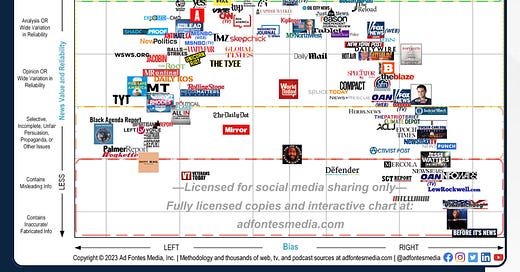
Discover more from The Freedom Academy with Asha Rangappa
I’ve been busy this Friday night perusing the indictment against three Iranian nationals for their hack-and-leak operation to influence the 2024 election. For those who have been in my Substack course for a while, we covered this old playbook in Class 19. (If you just joined the course, it’s worth checking out that post for context!) The comparison with what Russia did in 2016 offers a few big takeaways:
Iran is learning the ways of the dark side (obviously) and learning from their geopolitical Darth Vader, Russia. We kind of take hack and leaks as a given nowadays, but it’s worth remembering that it was such a new tactic in 2016 that it caught our own intelligence community flat-footed — we were used to foreign adversaries stealing data, but not weaponizing it. Given that it worked so well for Russia in 2016, it’s not surprising that other countries are getting into the game: After all, dumping hacked info doesn’t require any particular proficiency in imitating Americans, etc. (something that Iran tried to do in 2020, when it sent threatening emails to Democratic voters in Florida, purporting to be from the Proud Boys…but were quickly exposed). So in terms of barriers to entry, this tactic is relatively low hanging fruit for our adversaries.
The fact that news organizations didn’t bite on the leaked information this time around shows that we are getting better, too! The reason Russia was so successful in 2016 was that they believed that news outlets would be so tempted by salacious insider info on the Clinton campaign/DNC that leaking it could quickly hijack news coverage away from both the joint DHS/ODNI/FBI statement that Russia was attempting to influence the 2016 election, and the leak of the Access Hollywood tape. (I know it’s hard to believe that all of this happened in the same day, just hours apart, but it did.) Russia was right: News coverage immediately pivoted to cover the leaked emails — — a great example of the Russian disinformation tactic of reflexive control. By contrast, major news outlets have not touched the Iranian hacked data — which includes insider information from the Trump campaign. This is good, in my opinion, because it hopefully further disincentivizes such attempts in the future.
You might be wondering what the point is in bringing this indictment. After all, all of the defendants are in Iran. And the indictment doesn’t allege anything particularly shocking — Iranian hackers got the data they were seeking through pretty basic spearphishing and social engineering techniques. (If you want more detail on what that means, I recommend the book and book talk with Scott Shapiro that I did for the Freedom Academy Book Club.) It’s true that the U.S. government are unlikely to ever bring the hackers they indicted to justice. But as I have often repeated in my disinformation course, the way to neutralize an influence operation is to expose it. In particular, a big goal of these indictments is to strip these foreign actors of any plausible deniability (something this indictment does to great effect by including photos and addresses of the hackers, heh heh). The DOJ is getting much better at this, a trend that started with Mueller’s indictment of the Russian companies and nationals who interfered in 2016 and most recently included its indictment for a sophisticated covert operation involving right-wing social media influencers. The U.S. government is sending a message to Iran (and the Rogue State Club): We know who you are, and we will name, shame, and doxx you. Go DOJ!
I know the Iranian indictment came on the heels of other foreign influence charges against New York Mayor Eric Adams, but you’ll have to stay tuned for the next podcast to hear more about that. In the meantime, Renato and I break down some of the potential issues in the charges against P. Diddy, as well as the “Terrorgram” indictment, (which I will be writing about in more detail for Cafe Insider this coming week):
Articles worth reading:
I have not yet watched Rachel Maddow/MSNBC’s latest documentary, “From Russia with Lev,” but the bits I have been hearing seem to echo some themes I wrote with Ryan Goodman in a two-part article for Just Security back in 2020 about Russian influence in Congress and with American journalists. I mean, as long as we’re talking about foreign influence and all.
Upcoming events:
NEW! Wine & Fries Club Workshop: INTEL BRIEF: Who Wants Your Data and Why, Sunday, October 27, 8 p.m. EDT. In light of the seemingly endless parade of DOJ indictments against rogue actors for foreign influence in our political and electoral system, I will be offering founding members a chance to hear my talk that uses the U.S. Intelligence Community’s current Annual Threat Assessment to explain in lay terms how our foreign adversaries and use cybertools – including theft, espionage, and hybrid warfare – to facilitate their geopolitical objectives. I recently gave this talk to the Yale community at the invitation of our IT department and one attendee wrote to say it was “the most interesting talk I have attended at Yale.” (!) Zoom link will be sent to founding members three hours prior to the talk and will be recorded and posted after.
NEW! Guest Speaker Renee DiResta, author of Invisible Rulers: The People Who Turn Lies Into Reality (TBA, late October). I have been waiting for someone to unpack how social media and algorithms distort our marketplace of ideas, and am thrilled that Renee has agreed to be a guest speaker for our class! This will dovetail with our upcoming module on Social Media and the Media Ecosystem, where we will look at how social media and “propaganda feedback loops” like Fox News have upended some of the basic underpinnings of our democracy. A Zoom link will be sent to paid subscribers three hours before the talk and will be recorded and posted after.
Freedom Academy Book Club with Yale Professor Jason Stanley, author of Erasing History: How Fascists Rewrite the Past to Control the Future, Date/Time TBA (early November). I’m soooooo excited that my friend and colleague Jason Stanley will be joining us to discuss his new book, which was released just last week! We’ll have this book discussion right before the election, to remind us what’s at stake. The Freedom Academy Book Club discussions are open to all paid subscribers and recordings of the talks are posted afterwards in case you can’t make it live.
Meanwhile, my son is in India on a gap year and wrote to me to ask for “cute” pictures of Pancake because apparently the people he is traveling with don’t think Pancake is cute. ??? BLASPHEMY. I would love confirmation that Pancake is cute because that made me really sad. :(


















That’s one fine feline. And so self assured. Pancake soars beyond cuteness
Pancake is very cute & adorable. Give him a big hug for me and remind him that Donvict is lying about cats being eaten.
Caturday 😺